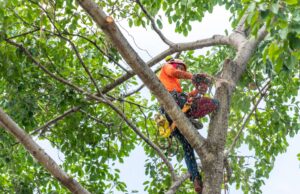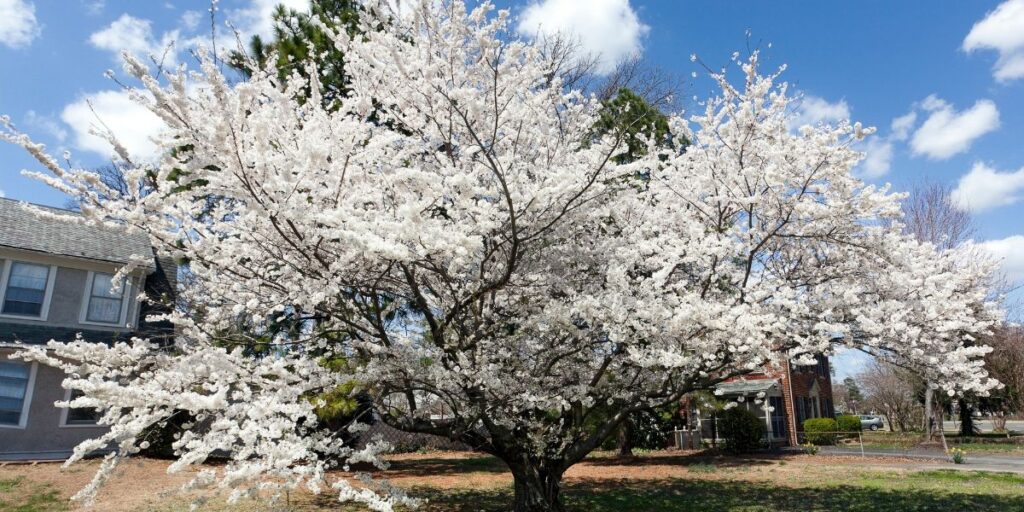Bradford pear trees or Callery pear trees (Pyrus calleryana) are a problem in the Cincinnati metro area and beyond.
These invasive trees were imported by the US Department of Agriculture as an ornamental “street tree” and adopted by many residents and city planners due to their beauty and pest resistance.
While Bradford pears are beautiful, there are a number of drawbacks that make them a bad choice for planting. A recent Ohio ban should make you consider removing the trees completely.
What’s Wrong with Bradford Pear Trees?
- Bradford Pear Trees Stink
- Bradford Pear Trees are Easily Damaged
- Bradford Pear Trees are Invasive
Bradford pears are a bad choice for your yard. Read on for more info.
Bradford Pears Stink
If you observe a Bradford pear tree when it’s in bloom, the first thing you’ll notice is the terrible smell. This rank odor is most often characterized as a “rotting fish” smell. This strong odor lingers the entire time flowers are in bloom. Additionally, the tree’s fruit rots in the autumn creating which can add more unpleasant aromas to your property and neighborhood.

Bradford pear trees are beautiful but stinky.
Bradford Pears are Easily Damaged
Bradford pears are extremely prone to breaking and require a high level of regular pruning. This is due to both the way they grow, and their brittle wood.
The Bradford pears’ branching pattern gives them their characteristic oval shape, but this also makes them prone to breaking. This means trouble for people, pets, and cars that may be underneath the trees.
Additionally, Bradford pears’ wood is brittle, making it even more prone to breakage, especially in stormy weather. Regular maintenance can make these trees safer, but it can be extremely labor intensive and time consuming.
Bradford Pears are Invasive
Bradford pears are a major problem because they are invasive and come with related issues. These include:
- Preventing other plants from growing
- Killing other plants
- Reducing bird diversity
The Bottom Line on the Bad News Bradford Pear Tree
Bradford Pear Trees are not only a nuisance, but a bad choice in general. Several areas have begun to discourage their residents from planting the tree and others have taken it even further. Ohio has implemented a ban on the growing, sale, and planting of the Bradford pear tree. The goal is to reduce the number of new Bradford pears and stop its spread all together.
Cincinnati residents are taking the proactive approach by having the trees removed from their property completely. While this can be a difficult undertaking, our professional removal service will put your mind at ease. Call us for a free quote








